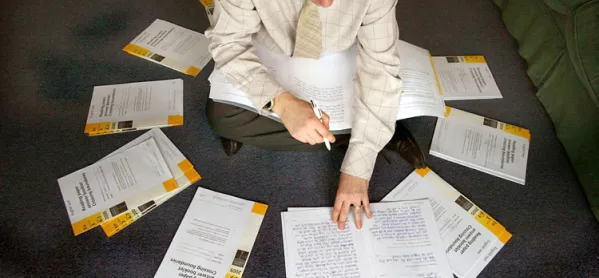Ofqual is looking at alternatives to “traditional” marking of candidates using a mark scheme, it has revealed.
Today the exam watchdog published summaries of five pieces of research into marking.
One of the studies looked at how traditional marking compared to two alternatives when it comes to rank-ordering candidates.
“Our examination system values the use of extended response questions in assessing important higher-level skills,” Ofqual said.
“But these responses are harder to mark than shorter, or more constrained, question types. This can impact upon the validity of the rank order of candidate work.”
The regulator said it was “therefore considering rank-ordering students’ work by means other than marking”.
A new method of assessment
It carried out a study looking at two alternatives - paired comparative judgement, and rank-ordering by placing extended responses in rank order - and compared these with traditional marking using a mark scheme.
Comparative judgement is an assessment approach that has attracted increasing interest in recent years.
It involves teachers taking two pupils’ scripts and simply deciding which one they think is better. This information is then fed into computer software. Teachers then compare another two scripts, and another two.
The computer algorithm is then able to rank many scripts into order of quality, as judged by the teachers.
“The research finds that the three methods produce rank orders that are very similar,” Ofqual said.
The regulator added: “This work indicates that more research in this area could be worthwhile.”




